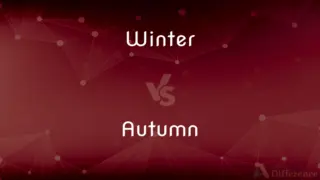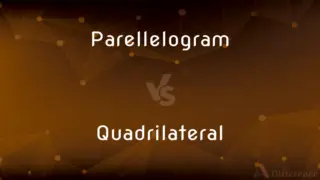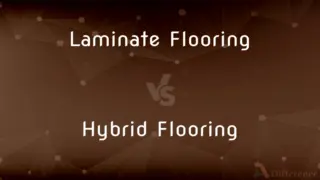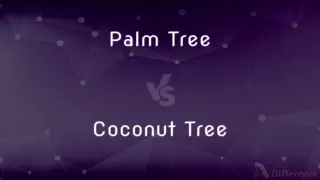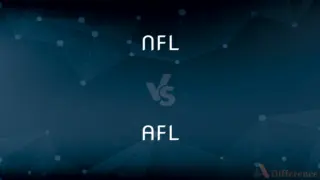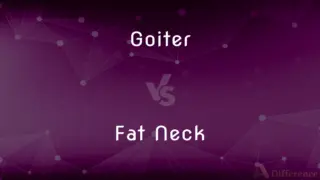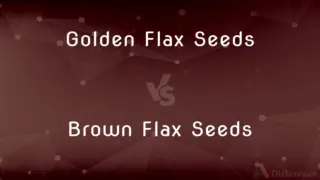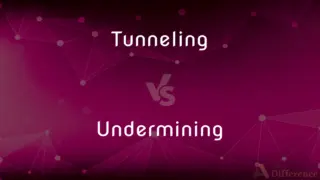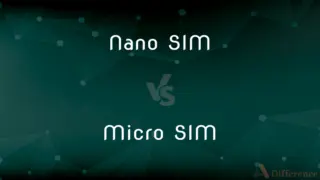Shook vs. Shaken — What's the Difference?
Edited by Tayyaba Rehman — By Urooj Arif — Updated on April 28, 2024
"Shook" is the simple past tense of "shake," used to describe immediate past actions, while "shaken" is the past participle, often used with auxiliary verbs to form perfect tenses.

Difference Between Shook and Shaken
Table of Contents
ADVERTISEMENT
Key Differences
"Shook" is the simple past tense form of the verb "shake," indicating an action completed in the past, such as "He shook the bottle." Whereas "shaken" is the past participle form, used in perfect tense constructions or as an adjective, like in "He has shaken the bottle."
When discussing immediate actions, "shook" directly addresses the completion, e.g., "She shook the rug to clean it." On the other hand, "shaken" implies an action that relates to a current state or ongoing relevance, as in "The rug has been shaken clean."
"Shook" often implies a singular, completed action, used without auxiliary verbs, such as "The earthquake shook the building." In contrast, "shaken" requires auxiliary verbs to denote the action, for example, "The building has been shaken by the earthquake."
In terms of emotional or physical states, "shook" describes a direct action: "The news shook him deeply." Meanwhile, "shaken" describes the resultant state: "He was visibly shaken by the news."
"Shook" is less formal and directly conveys action, suitable for everyday conversations. Shaken, however, often appears in more formal or literary contexts, enhancing the depth of an expression, such as in "Her faith was shaken."
ADVERTISEMENT
Comparison Chart
Part of Speech
Simple Past Tense
Past Participle
Usage with Auxiliaries
No
Yes (e.g., has, have, had, be)
Example Usage
He shook the container.
The container has been shaken.
Contextual Use
Direct Action
Resultant State or Condition
Formality
Informal
More formal or literary
Compare with Definitions
Shook
To jolt or agitate physically.
The rough seas shook the ship.
Shaken
Mixed or agitated thoroughly.
The cocktail is best when shaken.
Shook
Past tense of shake, to move something back and forth.
She shook the pillow to fluff it.
Shaken
Past participle of shake, used to describe a condition or ongoing effect.
The mixture should be shaken before use.
Shook
To unsettle or disturb emotionally.
The incident shook her confidence.
Shaken
Upset or disturbed emotionally.
She was shaken after the accident.
Shook
To tremble or quiver.
He shook with laughter.
Shaken
Used with auxiliary verbs in passive constructions.
The foundations were shaken by the earthquake.
Shook
To cause to move with quick, vibratory motions.
He shook the branch to dislodge the fruit.
Shaken
Characterized by trembling or quivering motion.
His voice was shaken during the speech.
Shook
Past of shake
Shaken
Past participle of shake.
Shook
Emotionally or physically disturbed; upset
She looks pretty shook up from the letter
Shaken
Past participle of shake
Shook
Keen on; enthusiastic about
Those stories you read about where two blokes get shook on the same sheila
Shaken
In a state of shock or trauma.
We were left shaken by the revelations of abuse.
Shook
A set of components ready for assembly into a box or cask.
Shaken
A flat shuriken resembling a spiked wheel, as opposed to the longer stick-like kind.
Shook
A set of parts for assembling a barrel or packing box.
Shaken
Caused to shake; agitated; as, a shaken bough.
Shook
Past tense of shake.
Shaken
Impaired, as by a shock.
Shook
A set of pieces for making a cask or box, usually wood.
Shaken
Disturbed psychologically as if by a physical jolt or shock;
Retrieved his named from her jolted memory
The accident left her badly shaken
Shook
The parts of a piece of house furniture, as a bedstead, packed together.
Shook
To pack (staves, etc.) in a shook.
Shook
(slang) Shaken up; rattled; shocked or surprised.
I am shook.
Shook
(slang) Emotionally upset or disturbed; scared
Shook
A set of staves and headings sufficient in number for one hogshead, cask, barrel, or the like, trimmed, and bound together in compact form.
Shook
To pack, as staves, in a shook.
Shook
A disassembled barrel; the parts packed for storage or shipment
Common Curiosities
Why is "shaken" often seen as more formal?
"Shaken" is used in more complex tense constructions and literary contexts, giving it a more formal tone.
Can "shook" and "shaken" be used interchangeably?
No, "shook" and "shaken" serve different grammatical purposes and are not interchangeable.
How do I use "shaken" in a sentence?
Example: The whole community was shaken by the tragedy.
What does it mean when someone says they are "shaken"?
It means they are emotionally disturbed or affected by something.
How do I use "shook" in a sentence?
Example: He shook the tree to release the ripe apples.
What types of actions do "shook" describe?
"Shook" describes direct, forceful actions that are completed in the past.
What is the primary difference between "shook" and "shaken"?
"Shook" is the simple past tense used for immediate past actions, while "shaken" is the past participle used with auxiliary verbs or as an adjective.
Is "shaken" only used in passive voice?
Mostly, but it can also be used as an adjective describing a state or condition.
In what context would "shook" be inappropriate to use?
"Shook" would be inappropriate when describing a state or condition resulting from a past action.
How does the formality of "shook" and "shaken" affect their use in writing?
"Shook" is more casual and straightforward, while "shaken" suits formal and elaborate narratives.
Share Your Discovery

Previous Comparison
Execute vs. Conduct
Next Comparison
Chicken vs. CrocodileAuthor Spotlight
Written by
Urooj ArifUrooj is a skilled content writer at Ask Difference, known for her exceptional ability to simplify complex topics into engaging and informative content. With a passion for research and a flair for clear, concise writing, she consistently delivers articles that resonate with our diverse audience.
Edited by
Tayyaba RehmanTayyaba Rehman is a distinguished writer, currently serving as a primary contributor to askdifference.com. As a researcher in semantics and etymology, Tayyaba's passion for the complexity of languages and their distinctions has found a perfect home on the platform. Tayyaba delves into the intricacies of language, distinguishing between commonly confused words and phrases, thereby providing clarity for readers worldwide.














